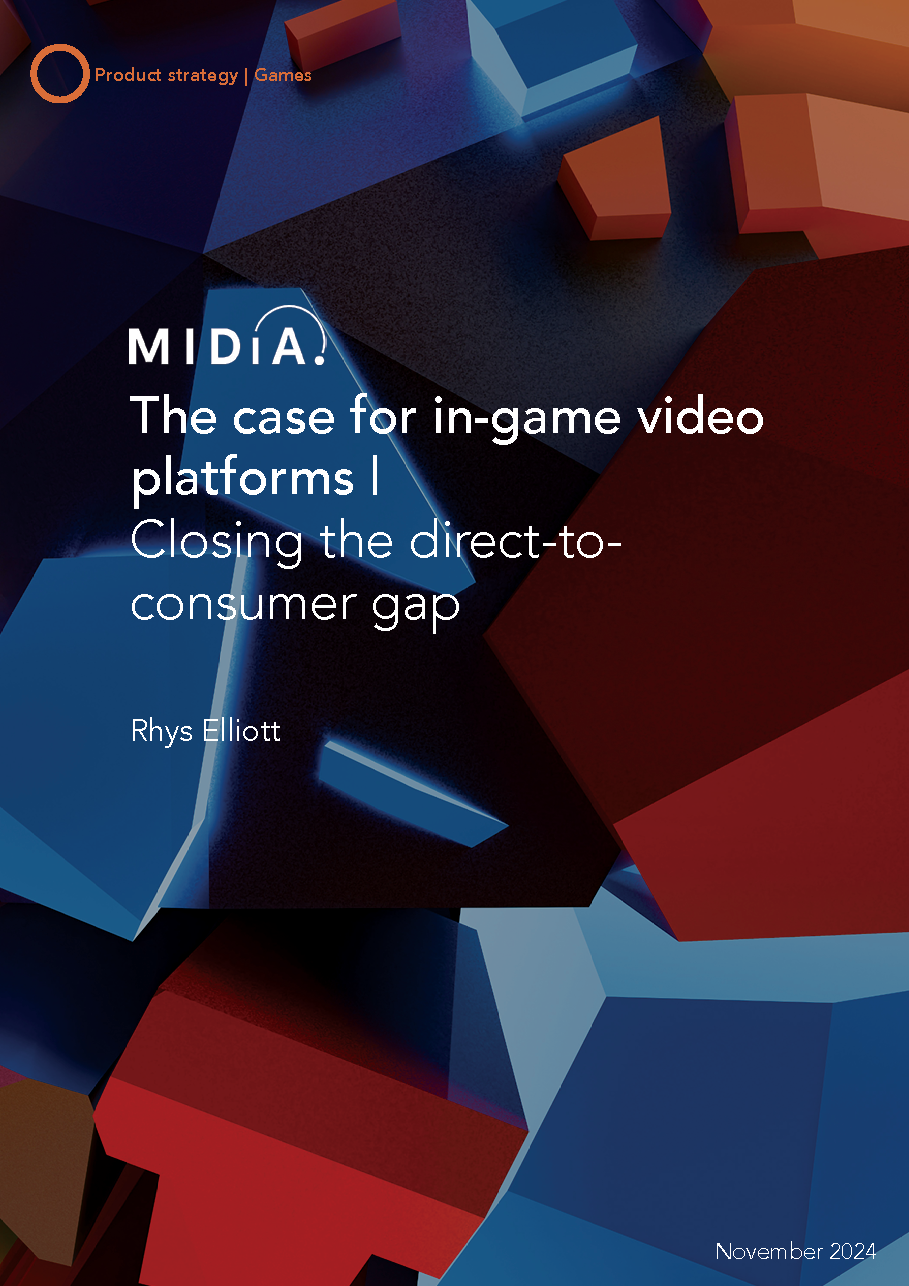The case for in-game video platforms Closing the direct-to-consumer gap

Get full access to this report and assets
If you are interested this report, or related reports such as High tide raises all ships Leveraging the cultural tidal wave of Grand Theft Auto VI, The single-player opportunity Course correcting from a red to blue ocean and MIDiA Research 2024-2031 global social forecasts New frontiers and strong growth ahead get in touch today to enquire about a report bundle.
Game publishers have long used third-party video platforms like Twitch and YouTube as a springboard to promote their games. Meanwhile, Twitch and YouTube get advertising and creator-driven revenues in return. The relationship has largely been reciprocal and beneficial for both parties. But games market revenues are facing growth challenges, with the attention economy saturated and time spent increasingly difficult to grow. It is time for game publishers to see creators as more than marketing. The userbases of the largest game publishers and distributors are sizeable enough to create their own game content platforms alongside Twitch and YouTube. These first-party video platforms can happen within individual games (like Call of Duty) or owned libraries of games (e.g., games across the Xbox ecosystem). The opportunity is all about publishers capturing video-related consumer engagement, generating new engagement, and – most importantly – unlocking new revenue streams in a stagnant games market. This concept-briefing report dives into how game publishers can reclaim engagement and revenues from third-party video platforms.
Key data and insights in this report:
- Gamers’ video content viewing behaviour by age bracket (Q2 2024)
- Viewers’ weekly time spent playing games and watching social videos (Q2 2024)
- Game viewers’ monthly spending on in-game purchases, compared to the average gamer (Q2 2024)
Survey data is from MIDiA Research consumer survey Q2 2024 and 2023, fielded in the US, UK, Australia, Canada, Germany, France, Sweden, South Korea, and Brazil.
Words: 3813 Pages: 17 Infographics: 3
Companies and brands mentioned: Activision Blizzard, Call of Duty, Capcom, Discord, Epic Games Store, Fortnite, Forza, Gears of War, Guitar Hero, Halo, Microsoft, Microsoft Flight Simulator, Mixer, Netflix, Patreon, PlayStation, Skylanders, Square Enix, Steam, TikTok, Tony Hawk’s Pro Skater, Twitch, Valorant, X (formerly Twitter), Xbox, Xbox Game Pass, and YouTube
